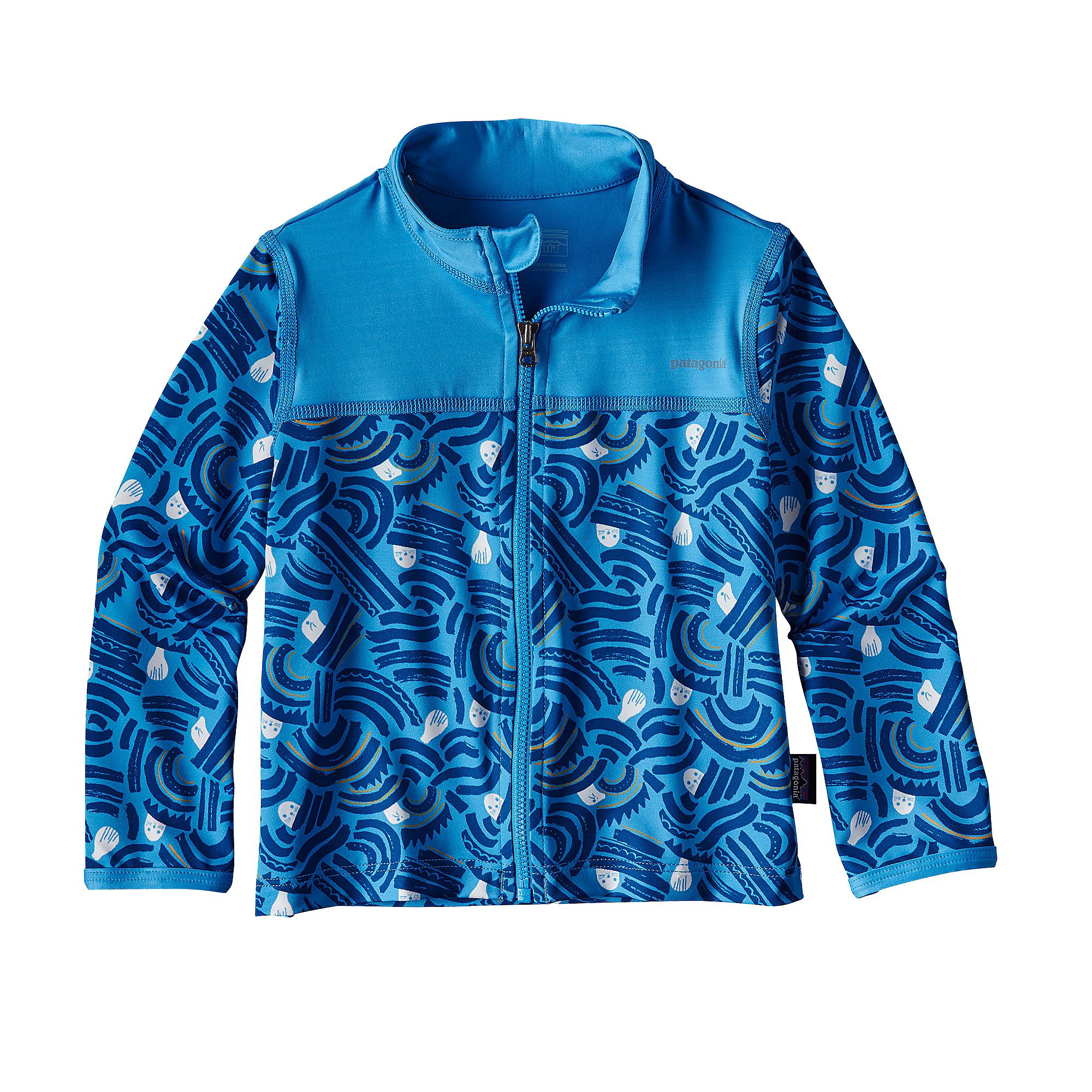September 15 to October 15 marks National Hispanic Heritage Month and in honor of the rich cultural traditions of our Hispanic neighbors, friends, and colleagues, ���ϳԹ��� Business Journal would like you to meet five designers with roots in Mexico, Ecuador, and Peru. Some have worked in the industry for decades; others are fresh faces just starting out. All are working to bring about positive change in the outdoor industry.
While it’s important to reflect on and celebrate Hispanic culture, elevating these voices should not be limited to just a month. “I understand the importance of celebrating Hispanic Heritage Month,” said Martha Garcia, director of global brand creative and communications at HOKA ONE ONE. “But how can we get to a point where we’re doing that and also being intentional about bringing these people into the conversation beyond DEI? Where we’re bringing them in because they’re expert communicators or designers or whatever?”
As Garcia says (echoing ���ϳԹ���PR’s Massimo Alpian), people of color deserve to be part of our industry’s narrative on a regular basis, and not just on issues relating to diversity, equity, and inclusion. We will all be better for it.
Tahany Huerta
Technical softgoods equipment developer at Black Diamond
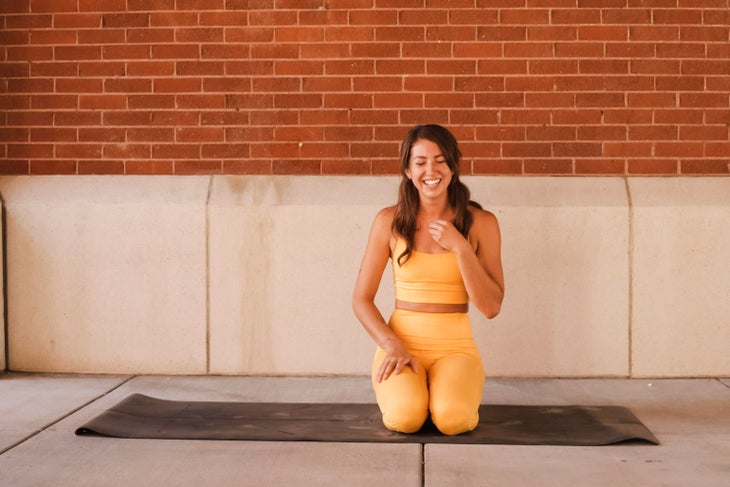
As a technical softgoods equipment developer at Black Diamond, Tahany Huerta has a lot of responsibility. Although she’s just two years into her role, she’s already fully accountable for the physicality of her projects—costing, materials, 3D versions of design—as well as managing the team to, well, make sure shit gets done.
Her leadership position gives her a voice. And Huerta, whose mother is Mexican and whose father is of Spanish descent, is using it.
“I kind of feel like I’m a pain in everyone’s ass, honestly,” she said. “But overall, I think it’s just the fact that I’m there and part of the team, it feels like it’s my obligation and also my opportunity to bring these things to peoples’ forefront.”
The “things” she speaks of: products designed in a silo. She points to examples of packs and harnesses designed for a single user-base (read, slim, white, and male)..
“We see so many different body frame styles throughout different culture groups, but because the outdoor industry has been dominated by majority white men, those groups are never served,” she said. “They may be seemingly arbitrary examples, but they’re not arbitrary to me.”
Huerta recognizes that the problem is institutional, not just insular, and she cuts the outdoor industry some slack.
“I have moments of doubt and think, ‘Am I being crazy? This feels like an issue to me, but it’s not an issue to everyone else here,’” she said. “But it makes sense. They’ve never had to deal with these experiences [of feeling unheard and unrepresented]. It’s hard to constantly be the one or one of a few people bringing up a problem when the majority is like, ‘No, no, no. It’s fine.’”
Yet even if the oversight is understandable, Huerta emphasizes it’s not acceptable from a moral, ethical, or even financial viewpoint.
“Our world is changing and even if that change doesn’t feel relevant to you, if all you care about is business, this is relevant to your business too,” she said. “We have more people of color coming into climbing spaces or trail running spaces, and if we’re not going to speak to those new people entering those spaces, then you’re just choosing ignorance.”
Daniella Manini
Textiles designer with Patagonia
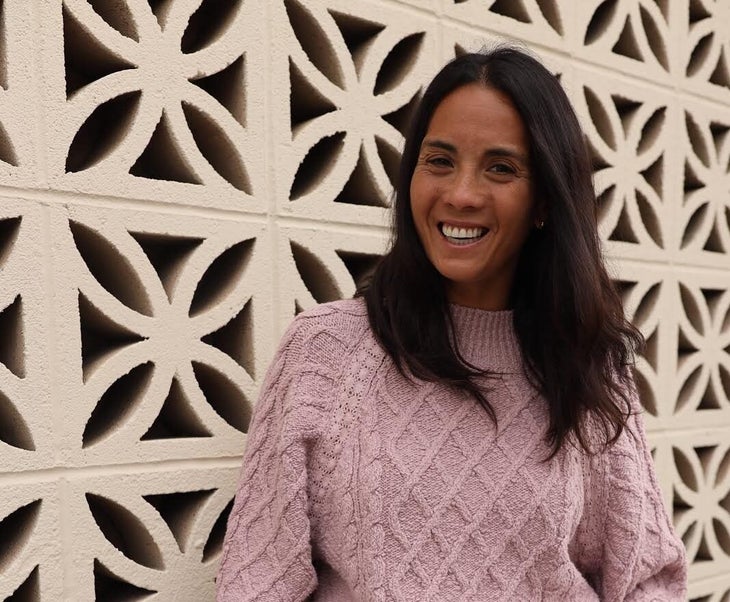
Rolled “Rs” and curved “Ñs” ring through the hallways of Patagonia headquarters thanks to Daniella Manini, one of the brand’s in-house textiles designers. Born and raised in Peru, she slides effortlessly into her native tongue when chatting with her Latinx co-workers.
“Speaking to them in Spanish is a nice way to connect and bring diversity into the hallways, emails, and any communication,” she said. “I love to connect with them because some of them have been at Patagonia for a while, some of them for 30 years. Chatting with them makes me feel a bit at home.”
Having worked with Patagonia for more than six years after stints with ocean artist Aaron Chang, Billabong and Vouri, Manini is an industry veteran in her own right. Her prints and patterns have graced the Gore-Tex and recycled polyester canvases of kids’ puffy jackets, women’s swimsuits, men’s board shorts, and much more.
“I like to create bold and colorful pieces,” she said. “Peru is known for that and I like to bring that inspiration from my youth whenever I get a chance.”
“So many Hispanic countries are being impacted by climate change. You can see it all around you there,” she said. “Patagonia has so much history in South America and I think we have a great opportunity to be a voice for Hispanic cultures in the outdoor industry. I hope my designs for Patagonia can be a tiny reminder of this.” In addition to breathing Peru’s passion for color into Patagonia’s palettes, Manini also aspires to represent her country on issues of global importance. She points to the brand’s mission statement, “We’re in business to save our home planet,” a credo that permeates everything it does. Hailing from a country facing deforestation, mining, fires in the Amazon, and displacement of Indigenous people, Manini recognizes her potential to speak out on behalf of her people.
Jorge Rojas
Footwear designer with Industrial Design Workshop and consultant to Vasque
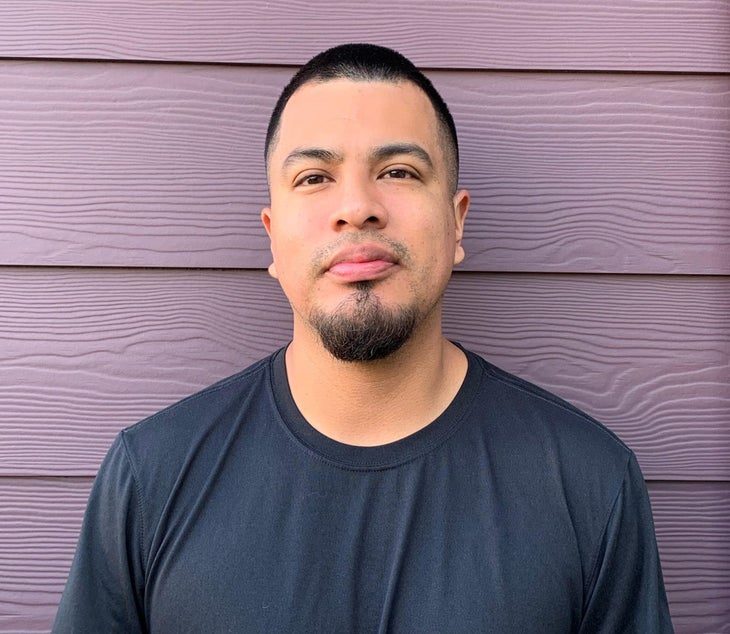
Jorge Rojas began tagging along with his parents in the strawberry fields outside Portland, Oregon, when he was just a little kid. By the time he was a teenager, he was joining them in the backbreaking picking process, rising at four or five in the morning in order to get to the field by 6 P.M. For him, summer “break” was no break.
“I was in the strawberry fields,” Rojas said matter-of-factly, without complaint.
It’s clear the footwear designer and development consultant respects his parents greatly for the values they demonstrated.
“I picked up a good strong work ethic from being out there,” he said. “Seeing my parents get up every day, really early in the morning and working until really late in the evening. Working hard is in my heritage. It’s in my DNA.”
Now with six years as a footwear/industrial designer with the wearable product experts at Industrial Design Workshop under his belt and a resume that reflects collaborations with big-name outdoor brands like Vasque, Rojas brings his staunch work ethic to the office every day.
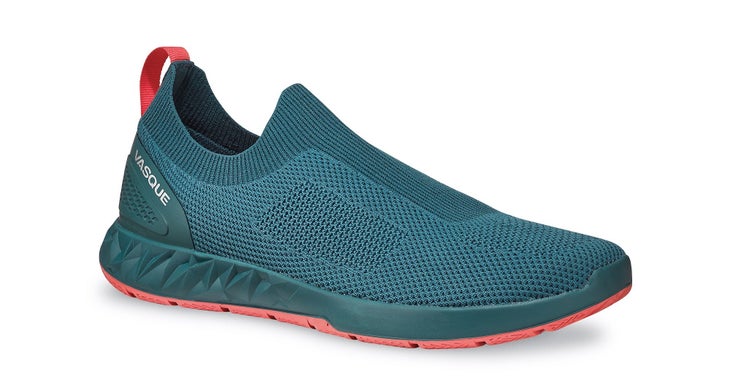
He’s also actively helping to groom the next generation of designers, many of them Latinx. Someday he hopes to work as an instructor at a design school, but for now he mentors these aspiring footwear designers over Instagram.
“I’ve never met them, but they reach out and ask what you think about a sketch,” he said, noting that he’s able to provide feedback on their designs, suggesting changes and providing tips for how to break into footwear design.
Passing on his knowledge to the next generation of designers is Rojas’ version of making sacrifices to ensure someone else has a better future—just like his parents did for him.
“I see it in my parents’ eyes that all the work we’ve done has paid off,” he said. “I’m glad that I’m able to make them proud.”
Anna Medina
Designer at Title Nine
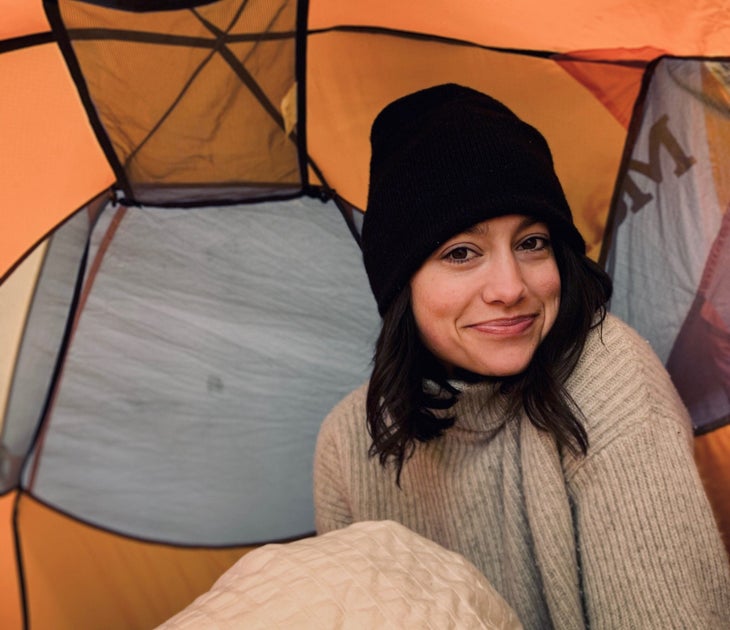
Anna Medina, a designer with women’s outdoor apparel company Title Nine, actively brings her Hispanic roots with her to the office each day.
“It’s impossible to leave your heritage at the door,” she said. “It’s who you are, the essence of what makes you you.”
She’s currently working a year out on apparel for the Fall ‘21 collection, a line that she hopes will level the playing field and “democratize the outdoors” by reminding us that outside is outside, whether you’re covering miles of backcountry terrain or walking your dog through your neighborhood.
“The outdoor experience is not exclusive to visiting national parks, going surfing, or going on a climbing trip. That is a privileged experience that is not accessible to many communities for so many different reasons,” she said. “While my designs may not feel as rugged as traditional outdoor apparel, the aesthetic is more inclusive and the garments are just as tough.”
Medina’s lived experience and Ecuadorian heritage have given her a wider lens to what an outdoorsperson looks like.
“When you think about your target (outdoor) customer, I see much more beyond that because I am part of communities who experience the outdoors much differently,” she said.
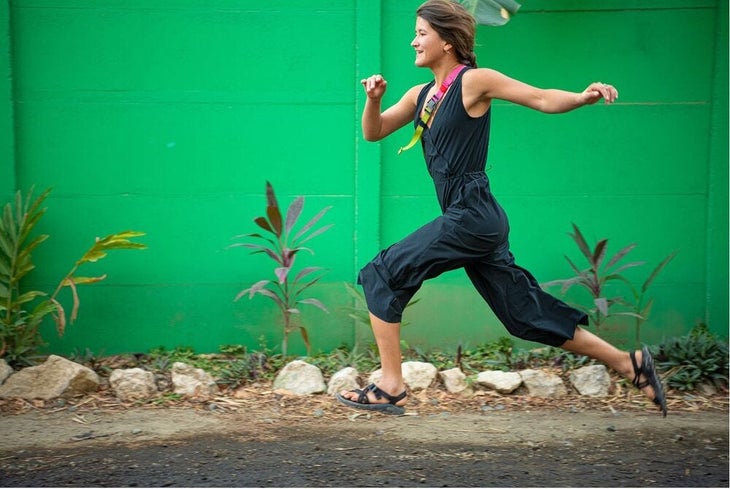
And though Medina is barely three years into her tenure with Title Nine, she already has big plans to tackle inequality in the outdoor space.
“I plan to disrupt the industry as much as possible and aim to use my position to change the status quo and support marginalized communities,” she said. “But I can’t do it alone, and together, we can really shake things up.”
Vince Mares
Senior creative director with Kelty and Exxel Outdoors
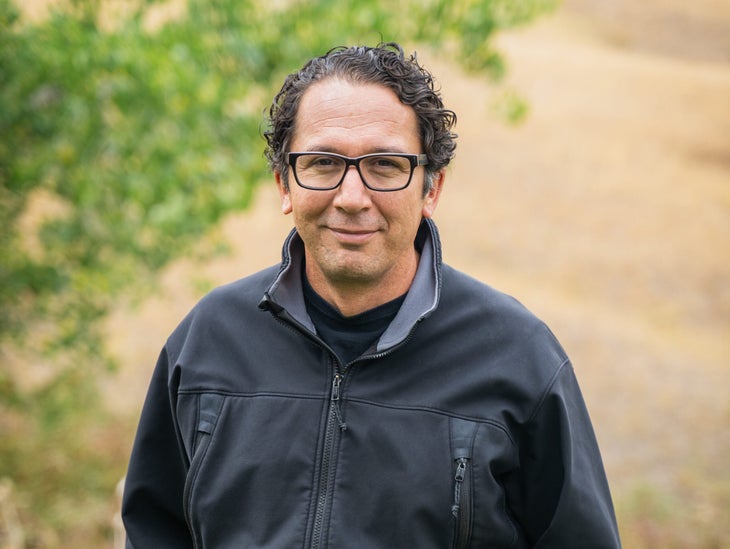
Vince Mares’ great-grandfather walked a long road, roughly 1,100 miles, from Mazatlán, Mexico to L.A. to look for work. As the story goes, his industriousness was rewarded and he earned a job in a factory in L.A. Around him, the Great Depression was ravaging the U.S.
But while there’s a clear note of pride in Mares’ voice when he recalls his family lore, he’s quick to caveat his own California upbringing, calling himself the product of an assimilated culture more than a purely Hispanic one.
“While I acknowledge my heritage and embrace all the different things like the culture, the music, and the food, I don’t express it in an outward way,” the senior creative director and 11-year veteran with Exxel Outdoors, parent company to household name brands like Kelty and Slumberjack, said. “If you ask most people around here, they wouldn’t be able to tell you I’m Mexican. They think I’m Italian.”
Mares’ trail to the outdoor industry is different from most. His passion wasn’t honed after a childhood spent exploring national parks or working in the family gear shop. After high school, Mares had to forge his own way in the world, so he signed up for the GI Bill and headed off to the U.S. Army, eventually serving in Operation Desert Storm.
“I found my love for the outdoors through the Army,” he said. “Being in the Army with a Light Infantry Airborne unit, I had to carry everything on my back. I learned about backpacking through romping around the woods at night and I thought, ‘This could be really fun in the daytime without this camo on and all this heavy stuff on my back.’”
Back in California after completing his active duty tenure, Mares started a degree in product design—working part-time, yep, at a gear shop—and fell in love with backpacking, passions he consistently wove together in school projects. His senior thesis design for a big-wall haul bag was sponsored by Wayne Gregory, founder of Gregory Mountain Products, giving him a foothold in the outdoor industry and cementing his future.
“I had a long road to get here and I had to do it myself, but I’m also proud of that,” he said reflecting on the “do-it-yourself mentality” and gritty “roll-up-your-sleeves” perseverance that comes second nature to him. “Maybe it does relate to that story of my great-grandfather.”
Two long roads. Two uncharted paths. Two success stories. Mares may not express his heritage in an outward way, but he’s certainly, and proudly, a product of it.


